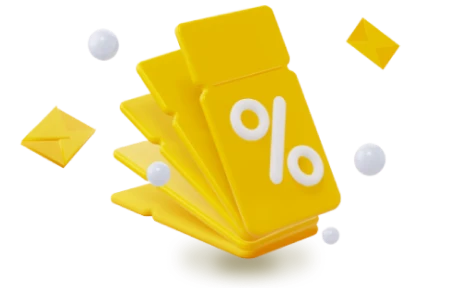Slot Machine Manipulation
While playing, many people have likely asked themselves: “How can slot machines be manipulated?” Since gambling first began, there have been attempts to tamper with slot machines to quickly gain large amounts of money. But is it possible to hack slot machines, given that they rely on luck? Fraudsters in the 20th century proved that tampering with slot machines was indeed possible. For this reason, many players today still attempt to manipulate these machines to claim large payouts. However, tampering with slot machines is illegal and can lead to both fines and imprisonment.
Is It Possible to Manipulate Slots, and What Are the Consequences?
The number of online casinos in Canada and their users is growing daily. It’s not surprising that many people wonder about slot machine manipulation. Winning on a slot machine largely depends on luck, and the chances are not always favourable. This has led to a rise in attempts to manipulate both physical and online slot machines. Fraudsters not only target machines in gaming halls, like Merkur slots, but also try to exploit online slots. While older methods of tampering have become obsolete, new schemes are constantly being devised.
In theory, online games and slots can be manipulated using various tricks, technical tools, and sometimes very simple methods. However, these practices disregard any sense of responsibility or concern for the fairness of the game or the well-being of other players. The creators of hacking tools don’t disclose that their methods involve illegal activities. To avoid legal trouble, players should focus on legitimate ways to improve their chances of winning rather than resorting to manipulation. Avoiding slot machine tampering altogether is strongly recommended.
Manipulating Traditional Offline Slots
Various methods have been used to manipulate traditional slot machines in land-based casinos. However, as of 2026, these practices are not advisable. Casino operators can detect fraudulent activities, and anyone caught tampering with machines faces legal consequences. Historically, some manipulations aimed to disrupt or alter the mechanical functions of the machines. Examples of past techniques include the use of magnets, counterfeit coins, coins with strings, or wires. Below is an overview of these methods:
Using Magnets
Some wondered if a slot machine could be manipulated with a magnet. This required a deep understanding of the machine’s design and significant skill. Magnets were held near the reels to stop them at specific symbols. This technique was only effective when reels were mechanically operated. Today, reels are electronically controlled, making this method obsolete.
Coins with Strings (Jo-Jo Cheat)
This classic trick involved attaching a string to a coin. Once inserted, the coin would activate the machine, but players would retrieve it using the string for repeated use. Modern machines have replaced mechanical sensors with electronic ones, making this method ineffective.
Counterfeit Coins
Older slot machines used weight-sensitive systems to verify coins. Fraudsters created counterfeit coins with similar weight and composition to bypass these checks. Today, physical coins have largely been replaced with player cards loaded with credits, making this trick impractical.
Wire Manipulation
A wire was inserted into the machine to block its counting mechanism, causing it to issue continuous payouts. Another variation involved using light wires to interfere with optical sensors, tricking the machine into paying out more than it should. These methods are highly noticeable and unlikely to succeed due to modern security measures. Furthermore, they are unreliable and carry significant legal risks.
Manipulating Online Slots
In addition to tampering with physical slot machines, there are claims that online slots can also be hacked. Fraudsters reportedly use various tricks and techniques to attempt to secure large payouts. Among these, slot manipulation via mobile devices is often highlighted. This involves the use of so-called hacker apps that promise significant winnings. However, each slot has its own algorithm, and modern software security measures are highly effective. Additionally, the app would need to be specifically compatible with the targeted slot machine’s data. While manipulation might be theoretically possible, it is strictly prohibited.
Cheat Codes
Cheat codes, or source codes, make it almost impossible to predict a slot machine’s outcomes. These codes are typically known only to the software providers. In the 1990s, a notable case of slot manipulation occurred in Nevada. Ronald D. Harris, an inspector, analyzed slot machine software for potential flaws. With access to RNG (Random Number Generator) source codes, he manipulated the machines for personal gain. His unusually large winnings attracted management’s attention, and he was caught. Today, each provider and developer uses unique source codes, making it time-consuming and unlikely for anyone to discover and exploit them.
App Software Manipulation
Some claim that mobile apps can help manipulate virtual slots by predicting when to press a button to win. These apps supposedly analyze gameplay to identify moments when specific outcomes will appear. This form of manipulation may include software-based tactics, such as using specific key combinations. These combinations are generally known only to technicians responsible for maintaining or resetting machines, typically during software updates. Such attempts are quickly detected and highly improbable in today’s systems.
Exploiting Bugs
As online slots grow increasingly complex, programming errors or bugs may occasionally occur. These glitches can cause the software to freeze or malfunction, which fraudsters might exploit to manipulate the game. However, modern systems are designed to address bugs quickly. If a player is caught exploiting a bug, they could face significant penalties. Reporting such bugs immediately is strongly advised to avoid legal consequences.
Which Is Better: Manipulation or Understanding the Mechanics?
The idea of winning big while playing seems appealing, but attempting to manipulate slots often leads to legal issues. Although stories of successful fraud occasionally surface, they are rarely detailed to prevent copycat attempts or because readers may lack the technical knowledge to understand the mechanics involved.
Fraudsters attempting to manipulate slots need in-depth knowledge of how the machines and games operate. This includes understanding the mechanics, which manufacturers protect rigorously. Only a few individuals have access to the detailed inner workings of these machines. However, technically skilled individuals may still identify vulnerabilities and attempt manipulation.
Earlier generations of electronic slot machines allowed players to stop reels manually, making them easier to tamper with. Modern machines no longer use manual reels, and new technologies have been introduced to prevent manipulation. Anyone attempting to manipulate a slot machine must thoroughly understand the software and its requirements. Furthermore, they should consider the legal risks, including potential fines and imprisonment.
Focusing on legitimate gaming methods is not only safer but also ensures a fair environment for all players.

















